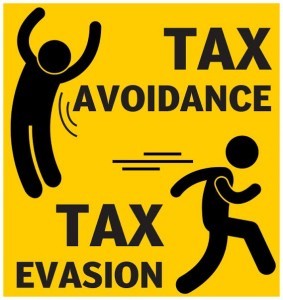Where does our tax come from? April 6th, 2016
 As we, rightly, get vexed about the scale of tax avoidance uncovered by the Panama Papers I think it’s about time we turned our attention to the problem with the tax that is paid. Whilst there is clearly an issue with some people earning income within the UK, and shifting it off shore to avoid tax, this is minuscule to the amount of money that is being removed from the developing world. In the decade between 2002 and 2011 it’s estimated that nearly $6 trillion was extracted from developing countries.
As we, rightly, get vexed about the scale of tax avoidance uncovered by the Panama Papers I think it’s about time we turned our attention to the problem with the tax that is paid. Whilst there is clearly an issue with some people earning income within the UK, and shifting it off shore to avoid tax, this is minuscule to the amount of money that is being removed from the developing world. In the decade between 2002 and 2011 it’s estimated that nearly $6 trillion was extracted from developing countries.
That is a staggering amount of money.
All of that money went somewhere. The simplistic story we have about the use of tax havens is that people take money, they don’t want to pay tax on, and it gets squirrelled away into foreign accounts where it just sits there doing nothing. Money never does nothing. Once that money has been”cleaned” it gets legitimately passed through hedge funds and investments vehicles and finds its way back into our economies.
It buys property in London propping up a housing bubble, it buys our football clubs, it hoovers up businesses and restructures them to become profitable and it becomes intrinsically entwined with our pension funds.
We know, from initial revelations, in the Panama Papers that the secrecy in Panama (and willingness to be complicit) led to the cleaning of the ill-gotten proceeds from the Brinks Matt robbery in 1983. Ethics aren’t playing a significant role in all of this.
The reason the UK needs to be most concerned about this is because we play a significant role in how clean money is moved around the globe because we take a cut. It should come as no surprise that much of the money that moves around the world passes through Crown Dependencies or British Overseas Territories. These tiny population areas account for massive financial transactions purely because we have tolerated a very lax regulation regime. These are all areas that if we don’t have explicit dominion over we do have a lot a of influence.
The City of London is the largest global centre for financial transactions and is closely linked to the operation of these financially ambiguous areas of the world. The financial sector in the UK accounts for around 9% of national output. It’s a greater proportion than manufacturing. Consequently it pays massive amounts of money into the UK as tax revenue. The is is tax revenue that is extremely vulnerable.
This shouldn’t come as a massive surprise. 2008 pointed out to us that a significant amount of our tax take was based on the illegal activities of banks. That’s why we have a deficit.
We don’t seem to have learnt from that and are still massively dependent on the tax income from financial services.
So what do we do if the world does tighten up its act? What if the massive amount of cash stops pouring out of the third world and into international investment vehicles? Simplistically less money gets invested and our tax revenue goes down. The UK has ridden on a wave of asset stripping from the Soviet Union and Africa for many years now and this won’t last forever, hopefully. We need to get ready for that and diversify where we get tax from.
We need to understand that a fairer world is going to cost us.
Posted in Politics | Comments (0)